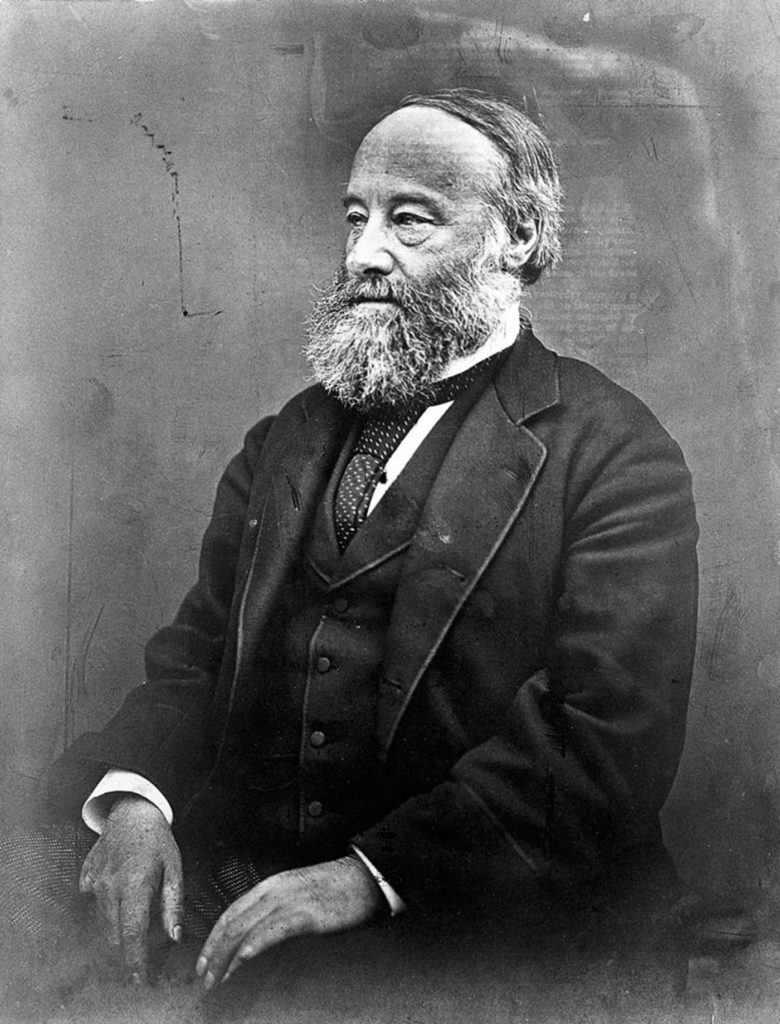
James Prescott Joule (1818 – 1889) was a British physicist whose most important scientific contribution was to establish an understanding of the relationship of heat to mechanical work. His work set the foundation for the idea of the conservation of energy, later leading to the development of the first law of thermodynamics.
James Joule was born on Christmas eve in England to the father of a successful and wealthy brewer. As a child he was fortunate enough to be tutored by the famous scientist John Dalton and that most likely had a lasting, positive impression him. By adulthood Joule was still managing the brewery business, and his business acumen combined with his scientific curiosity led to some important discoveries. During his free time he experimented with replacing the steam engines in his brewery with electric ones. This led to the discovery of what is now known as Joule’s Law, which establishes the relationship of the flow of a current through a resistance and the heat it generates. His experiments contained precise measurements which he reported in a series of scientific papers.
His work was noticed by Lord Kelvin and the two collaborated on several more experiments leading to the discovery of the Joule-Thomson effect – the change in temperature of a liquid or gas as it experiences a rapid change in pressure. This concept would later be used in refrigeration. The two also collaborated on an absolute temperature scaled now termed the Kelvin scale.
In 1850 Joule was elected as a member to the Royal Society and two years later he received the Royal Medal for his paper On the Mechanical Equivalent of Heat. His work helped make the caloric theory of heat obsolete and laid the groundwork for the modern theories of thermodynamics. The SI unit of energy, the joule, is named in his honor.